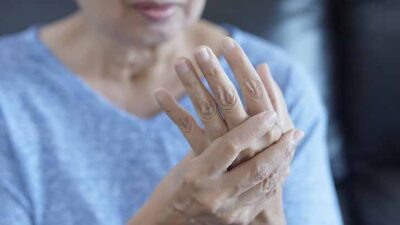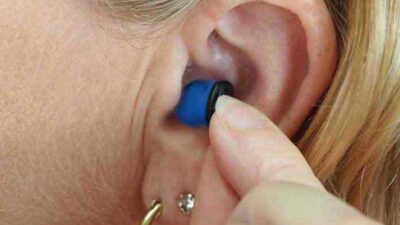Have you ever wondered about the popping sound when you crack your knuckles? You might remember your mother and grandmother warning about cracking knuckles. Many people believe that cracking your knuckles can lead to Arthritis. Some people believe that cracking the knuckles can make them bigger.
Such claims are nothing but old wives’ tales. The truth about cracking your knuckles lies in the research conducted by many researchers over the years. The process of cracking knuckles has intrigued many researchers.
None of the studies were conclusive about the relation between arthritis and cracking knuckles. Studies have shown that cracking your knuckles do not affect the size of your hand in any way.
Cracking Knuckles and Arthritis

- According to a research conducted by J Castellanos and D Axelrod, cracking knuckles cannot be blamed for Osteoarthritis. However the study concluded that people who crack their knuckles regularly may develop swelling and lower grip capacity.
- Dr. Robert Swezey conducted research on 28 nursing home inhabitants and details of 300 outpatients in order to find out the effect of cracking knuckles on the hand health. The results obtained from the study clearly showed that cracking knuckles did not show any increase in the risk of Arthritis.
Is Cracking Knuckles Addictive?
The question may sound weird but cracking knuckles is very addictive. Some people bite their nails, while others twirl their hair similarly few people become habitual knuckle crackers over time.
There is no scientific theory that can explain why cracking knuckles are addictive. However habitual knuckle crackers may experience comfort and feel the release of nervous energy. Dr. Rachael Vreeman, Assistant professor, Paediatrics Indiana University School of Medicine explains that cracking knuckles induces a feel good factor.
What Creates The Popping Sound During Cracking Knuckles?
For many years scientists across the globe believed that the popping sound associated with knuckle crack is due to the internal pressure shift of synovial fluid in the joint. Researchers believed that due to the pressure shift gas bubbles would form and pop causing the noise.
Thanks to the MRI equipments a team of International researchers busted the secret behind popping sound. They concluded that every time when the joint is stretched a cavity or vacuum pocket is formed in the joint. The popping sound is due the formation of the vacuum pocket.
Is Cracking Knuckles Bad?
For so long people believed that cracking knuckles can damage the joints and cause Arthritis. However researchers have not found conclusive evidence to support such claims. But habitual knuckle cracking was found to induce swelling of the joints.
Habitual Knuckle Cracking May Have Certain Consequences:
- Researchers have found a relation between habitual knuckles cracking and manual work, smoking, alcoholism and nail biting.
- Repeated knuckle cracking is found to cause damage to the hand.
- There are several reports of injuries resulted from habitual knuckle cracking such as half torn ligaments, dislocated fingers and excessive stretching of ligaments.
- Researchers have also linked knuckle cracking to knuckle pads.
- Knuckle pads are nothing but tiny nodules that form occasionally in the joints of the fingers.
- A study was conducted on an adolescent girl who was a habitual knuckle cracker. She had developed enlarged nodules over the years.
Joint Cracking Mechanism and its Influence On The Future
Though the scientists were successful in decoding the joint cracking phenomenon, it is yet to be seen as how researchers can use this valuable research result to study the possible therapeutic or harmful effects of habitual knuckle cracking.
Various Joint Cracks
In our body other joints may produce unusual popping sounds when tendons get caught in the irregular borders of the bones. In such instances people should seek medical help as it could indicate a possible ligament tear or injury.
Are There Any Positive Effects Of Knuckle Cracking?
- Knuckle cracking can make the person feel good. During knuckle cracking the joints are stretched and the person feels more flexible for a short period. Some people get addicted due to the feel good factor.
- Studies have shown that knuckle cracking is a sort of” nervous release”. Many people associate knuckle cracking with stress relief.
- There are no positive effects of knuckle cracking on our health. On the contrary chronic knuckle cracking can leave a person with a dislocated finger or swollen joints.
Can A Habitual Knuckle Cracker Stop Knuckle Cracking?
Many experts suggest few methods that can help a habitual knuckle cracker.
- One such method is EFT or Emotional Freedom Technique. In this technique the patient is guided to release the emotional stress so that his or her body can rebalance.
- Increasing the hand movements can keep the mind away from knuckle cracking.
- Alternatively habitual knuckle crackers can also develop a new interest or a hobby that involves the hands such as painting, drawing, crochet etc will help to stop knuckle cracking.
- Monitoring the harmful habit can help a person to overcome addiction. Similarly habitual knuckle crackers can control the habit consciously. Whenever a person realises that he or she is cracking knuckles they can switch to other things or a temporary distraction. Such behavioural adjustments can go a long way.
- Reducing stress can significantly help habitual knuckle crackers. Such addictive behaviours are caused by excessive stress.
- Increasing the awareness about possible consequences of chronic knuckle cracking can help people to break away from the habit.
Also See Theracurmin HP Review: The supplement helps to combat joint pain.
Conclusion
Many people associate knuckle cracking with Arthritis and other degenerative diseases. In reality researchers have found no conclusive connection between knuckle cracking and Arthritis. In the past the scientists attributed internal pressure shift of synovial fluid in the joints that produce gas to the popping sound. But recent studies using MRI equipments suggest that the popping sound is in fact due to the vacuum pockets. Knuckle cracking may not cause any harmful health conditions but habitual knuckle cracking is known to cause hand swelling and discomfort






 This article changed my life!
This article changed my life! This article was informative.
This article was informative. I have a medical question.
I have a medical question.
 This article contains incorrect information.
This article contains incorrect information. This article doesn’t have the information I’m looking for.
This article doesn’t have the information I’m looking for.